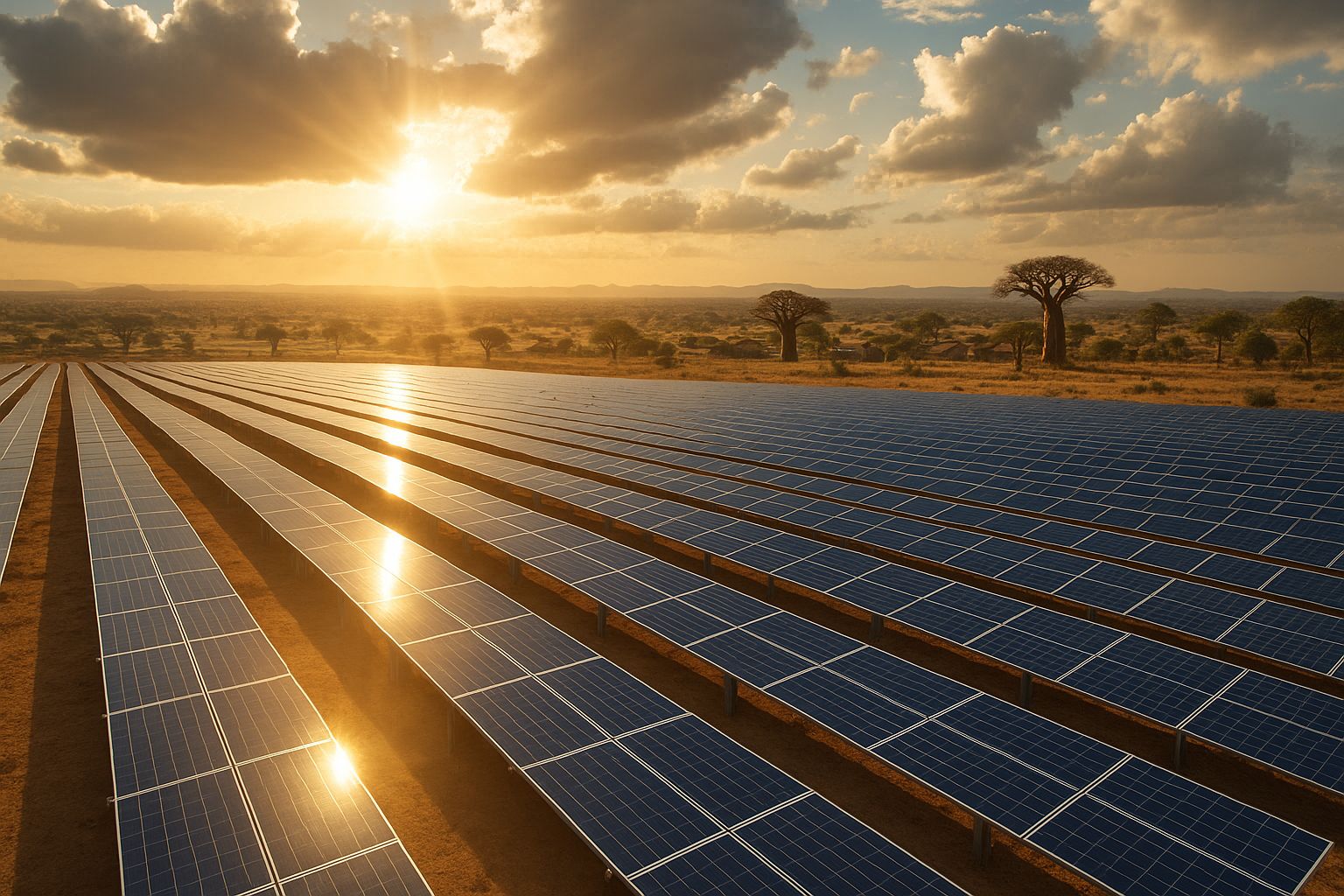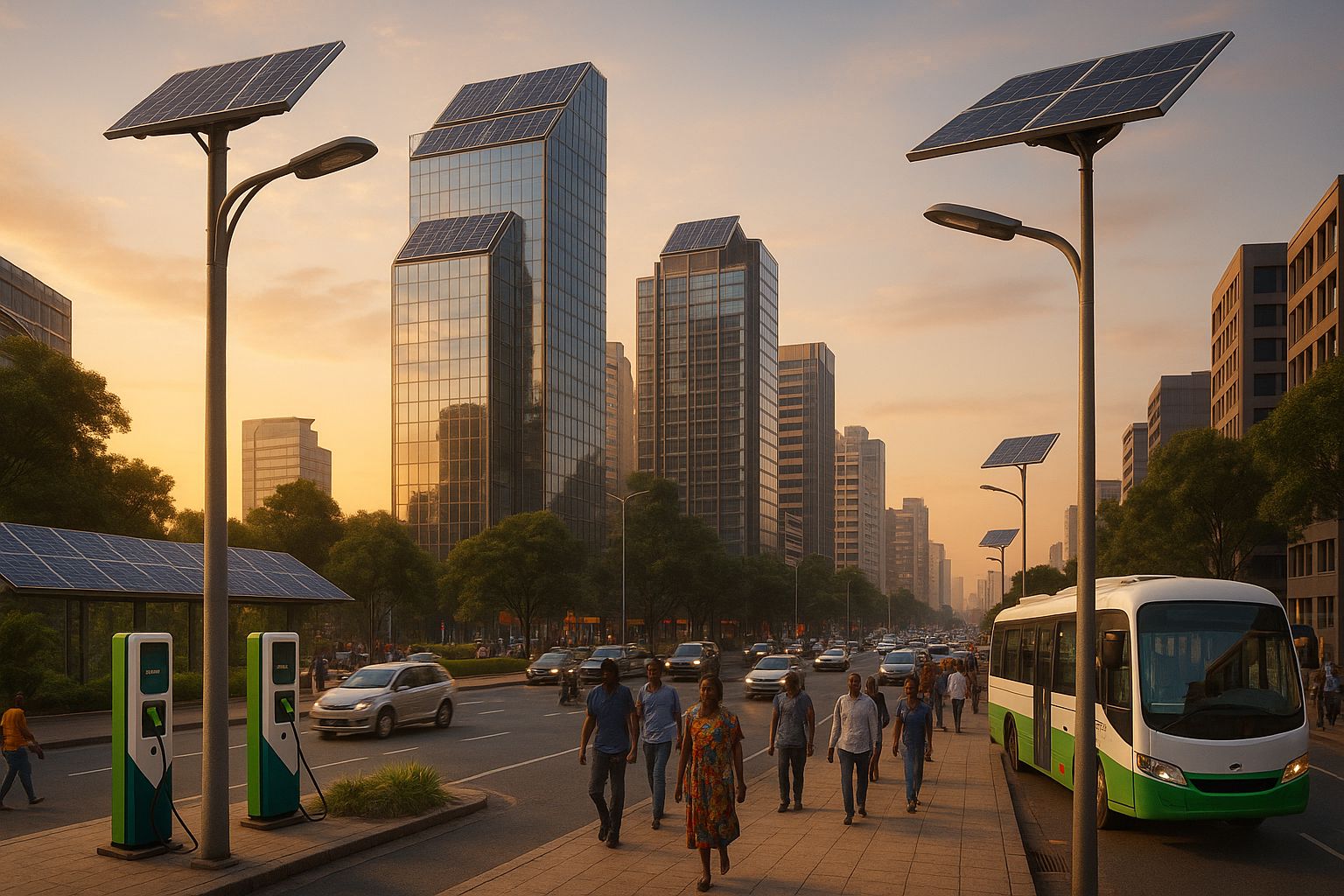- Green Glow
- Posts
- 🌱Africa Bets Big on Solar to Spark Jobs, Growth, and Climate Action 💼📈
🌱Africa Bets Big on Solar to Spark Jobs, Growth, and Climate Action 💼📈
Africa is betting big on solar energy to drive jobs, economic growth, and climate action. Discover how the continent’s abundant sunlight, critical minerals, and rising investments could power a green economy boom.
At the Africa Climate Summit in Addis Ababa, optimism is running high. Leaders and investors are envisioning a new era where solar energy powers not only homes and industries but also drives economic transformation across the continent. With abundant sunlight, growing demand for clean energy, and increasing international attention, Africa is positioning itself as a future hub of renewable innovation.
Table of Contents

Solar Power: Africa’s Untapped Advantage
Africa enjoys some of the highest solar irradiation levels in the world, yet only a fraction of its potential has been harnessed. The summit highlighted how scaling up solar can unlock affordable power for millions, many of whom still live without electricity. Unlike fossil fuels, which are concentrated in specific regions, solar energy is widely accessible—offering a fairer path to energy independence.
A Surge in Investment Opportunities
Delegates noted that Africa is already experiencing a sharp rise in solar imports, signaling investor appetite. Governments are rolling out policy frameworks to attract both local and foreign capital. The promise of a green economy boom is also tied to global climate finance pledges, with African leaders pushing for increased private-sector involvement.
Critical Minerals and the Resource Question
Africa holds vast reserves of cobalt, lithium, and other critical minerals essential for solar panels, batteries, and electric vehicles. This could be a game-changer, providing the continent with leverage in global supply chains. But there’s a catch: without fair partnerships, resource exploitation risks repeating the mistakes of the fossil fuel era. Summit discussions stressed the need for transparent governance and beneficiation—processing minerals locally to create jobs instead of exporting raw materials.

Green Growth and Job Creation
Renewables, particularly solar, are labor-intensive during construction and installation. This opens a path to mass job creation in both urban and rural areas. African leaders emphasized that a green economy isn’t only about hitting climate targets; it’s about sparking growth that lifts communities out of poverty. Training programs and regional cooperation will be key to ensuring that young Africans benefit from this transformation.
Financing the Transition
Despite enthusiasm, a major hurdle remains: financing. While solar projects are cheaper and faster to deploy than fossil-fuel plants, they still require upfront investment. African countries are calling for more affordable financing options, including concessional loans, blended finance, and debt relief tied to climate action. Without this, the risk is that momentum fizzles before real change takes hold.
The Global Stakes
Africa’s pivot to solar isn’t happening in isolation. As the world races to cut carbon emissions, the continent’s choices matter globally. If Africa succeeds, it can become a model for leapfrogging straight into clean energy without locking itself into decades of fossil-fuel dependence. That would reshape not just Africa’s future, but the global energy landscape.

Conclusion
The Africa Climate Summit underscored both the promise and the challenges of the continent’s green energy journey. Betting big on solar could light up millions of homes, create jobs for Africa’s booming youth population, and put the region at the forefront of global climate action. The path forward hinges on collaboration, fair resource use, and bold financing—but the opportunity is one of historic proportions.
FAQs
Why is Africa focusing on solar energy?
Africa has some of the best solar resources in the world, yet millions still lack electricity. Solar energy offers a clean, scalable, and accessible solution to power homes, industries, and communities.
How will solar investment benefit African economies?
Large-scale solar projects create jobs during construction, installation, and maintenance. They also reduce reliance on imported fossil fuels, strengthen energy independence, and attract global investors.
What role do critical minerals play in Africa’s green economy?
Minerals like lithium and cobalt, found in abundance across Africa, are essential for manufacturing solar panels, batteries, and electric vehicles. Managing these resources fairly can turn Africa into a key player in global supply chains.
What financing challenges exist for Africa’s solar expansion?
High upfront costs, limited access to affordable loans, and debt burdens make it difficult for many African nations to scale solar projects. Leaders are calling for concessional finance, blended funding models, and climate-linked debt relief.
Can Africa become a global leader in renewable energy?
Yes. By leapfrogging fossil fuels and directly investing in clean energy infrastructure, Africa could set a model for sustainable development and play a central role in global climate action.
You May Also Like
🌱 Why Renewable Energy Is Africa’s Smartest Investment Yet ⚡💡
🌱 Are Rising Tariffs Slowing Down the Clean Energy Revolution? ⚡💸
🌱 Airport Pollution Blamed for Lamb Loss: A Farmer's Devastating Story 😢🐑
🌱 How China’s Tourism Industry Is Embracing Renewable Energy to Go Green ✈️🌍
🌱 Extreme Heat is Coming for Our Kids—Will We Act in Time? 🔥⚠️
External Links
Follow Us:
X: https://www.x.com/greenglownews
Youtube: https://www.youtube.com/@greenglownews
Instagram: https://www.instagram.com/greenglownews
Sponsored Links